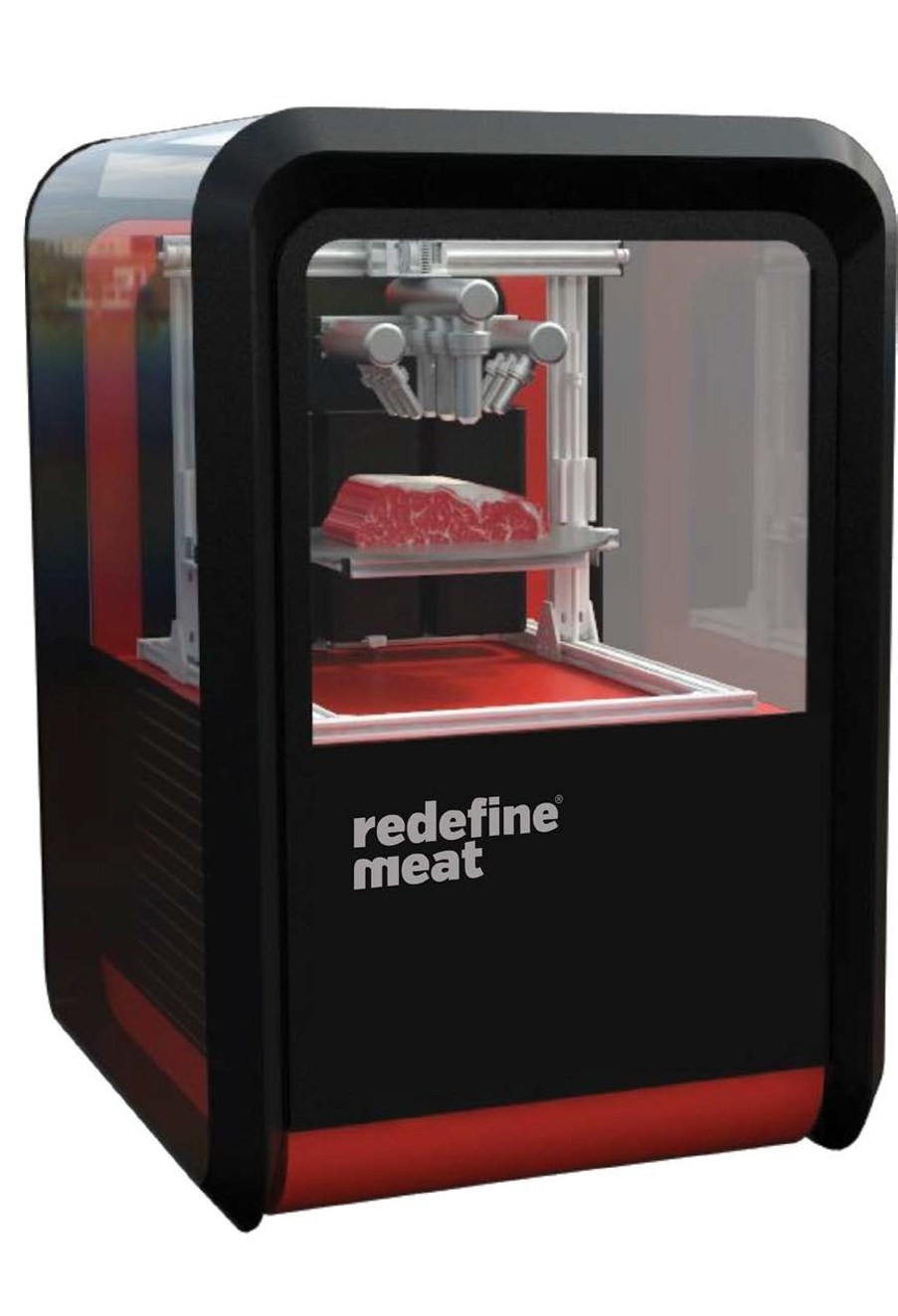
By RTN Staff - 6.30.2020
Redefine Meat has unveiled the world’s first “Alt-Steak” plant-based products, with market testing at select high-end restaurants to reportedly starting later this year. Created using a 3D meat printing technology, the products are said to have the same texture, flavor and appearance of beef steak and can be produced in the volume and cost to enable large-scale market launch.
Working with leading butchers, chefs, food technologists and the close collaboration of taste expert, Givaudan, Redefine Meat has digitally mapped more than 70 sensorial parameters into its Alt-Steak products, including premium beef cuts’ texture, juiciness, fat distribution and mouthfeel. Layer by layer, the company’s proprietary industrial-scale 3D food printers create the products using plant-based formulations.
By printing with multiple materials, Redefine Meat can create sustainable, high-protein, no-cholesterol steaks that, according to all accounts, look, cook, and taste like beef.
Last September, the Israeli company, which was founded in 2018, announced the completion of a $6 million seed round led by CPT Capital, joined by Israel-based Hanaco Ventures, Germany’s largest poultry company The PHW Group, and leading Israeli angel investors. The company has reportedly been using the investment to finalize the development of its alternative-meat 3D printer.

Like a number of other plant-based food companies that have recently made enormous inroads into the restaurant supply chain, including Beyond Meat and Impossible Foods, Redefine Meat is fueled by growing concern over the sustainability of the meat industry, the ability to meet food requirements of the world’s growing population, and compassion for animals. Nonprofits like Mercy for Animals and The Humane League have helped to drive greater awareness of the true scope of animal suffering taking place on factory farms, in particular.
Also driving the explosion in plant-based restaurant menu items is a growing awareness of the health benefits. In 2018, The World Health Organization classified processed meat as a carcinogen and red meat as a probable carcinogen.
The company’s mission is to offer a superior meat production technology that delivers products that are indistinguishable from high quality animal meat. According to the company’s founders, the use of 3D printing to produce alternative meat products will enable the creation of a highly productive and flexible 21st-century supply chain that is dramatically more sustainable than current animal factory farming and meat processing.
According to some estimates, livestock production is responsible for more than 50 percent of global greenhouse gas emissions, not to mention massive water consumption (animal farming is responsible for upwards of 33 percent of all freshwater use in the world) and contamination.
“Since day one of the company, we have been working on creating a tasty and affordable plant-based alternative to steaks, one of the most cherished food products and the driver of the entire meat industry,” says Eshchar Ben-Shitrit, CEO and Co-Founder of Redefine Meat, in a press statement. “To enable mass adoption, we knew that creating an alternative meat product that was both high in quality and nutritional composition would require new technologies and production processes never seen before in the food industry.”
According to a company spokesperson, the meat alternative products will be put to the test at a limited number of leading chef restaurants later this year. Incorporating feedback from high-level chefs and butchers, the company will then ramp up production of its 3D meat printers and alt-meat formulations ahead of market distribution in 2021.


